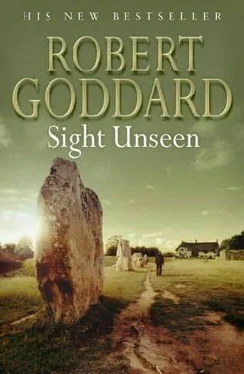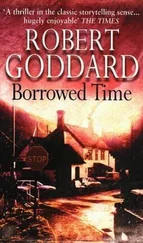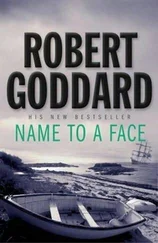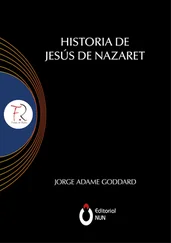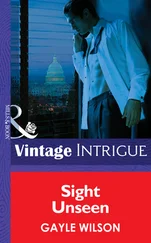'Piers, right?'
'Yes. I -'
'I'm David.' Some instinct deterred Umber from volunteering his surname, sharing it as he did with a deceased former tenant of Piers's flat. 'I'm, er… a friend of Alice's. I was staying here at the weekend.'
'I was out of town.'
'Well, we'd probably have bumped into each other if you'd been here.'
'Probably.'
'Look, the thing is -'
'Alice isn't here.'
'So I see. Has she gone away?'
'Yes. Last-minute decision, apparently. There was a note waiting for me when I got home this evening. She's taken off with her friend Claire. She's been staying here. I know that.' There was a hint in his tone that Claire's presence in the house was something he could vouch for, whereas Umber's was altogether more debatable.
'Did the note say where they'd gone?'
'No. Maybe she didn't want to make me feel envious.'
'What about for how long?'
'Open-ended, apparently. A few days. A week. She wasn't sure.'
'Right.' Monte Carlo it had to be. Claire's mobile had probably been switched off during the flight. If Chantelle had tried to contact her, she would not have succeeded. The fail-safe Umber had supplied her with had proved to be useless. 'Well, thanks.'
'No problem.'
* * *
No problem to Piers, perhaps. For Umber the situation was much more complicated. He went back to the cab and climbed in.
'Where to now, guv'?' the taxi driver prompted, when ten seconds or so had passed without a destination being supplied.
'I…' Umber thought of what Chantelle had done after fleeing Tinaud's rented apartment in Wimbledon five years ago. It was possible – just – that she had done the same after trying to speak to Claire. 'A hotel near Euston station.'
'There are quite a few, guv'.'
'Near as in opposite.'
'There's a Travel Inn on the other side of Euston Road. That'd be more or less opposite.'
'Then that'll do.'
* * *
It was a long shot and Umber was disappointed but not surprised to be told there was nobody called Fontanet – or even Hedgecoe – staying at the Euston Travel Inn. Fast running out of options, he booked himself in for the night. He thought about trying Claire's mobile again, then thought better of it for reasons that had only just begun to take shape in his mind.
He did some more thinking in the large and noisy pub a few doors along from the hotel. There was nothing Claire could do for Chantelle in Monte Carlo. If she and Alice were intent on confronting Tinaud, it might be better, in fact, if they knew as little as possible about his errant former girlfriend's whereabouts.
But that conclusion left Umber alone and resourceless. If he was no better placed come Friday, the roof would fall in on all of them. He had to do something. He had to seize the initiative. But how? With what? There was nothing: no answer; no hope. Then, quite suddenly, around the time a tsunami of cheers burst over him following a goal in the football match splashed across the pub's widescreen TV, the glimmer of an answer came to him. And with it a sliver of hope.
* * *
Junius held the key. Chantelle had said as much and maybe she was right. Wisby believed Griffin had been done away with by Tamsin's abductors. His special edition of Junius's letters had ended up in the hands of Marilyn Hall. Did that make her one of the abductors? If so, it was a chink in the armour of whoever she had been acting for – the juicy-voiced man in the car for one. If Umber could pin Griffin's murder on her, it would give him a bargaining chip, maybe a decisive one. It was a tall order. It required him to trace the previously untraceable Griffin. And that brought him back to the hunt for Junius himself, a hunt in which he had made only faltering progress. But something had changed now. Something had been returned to him. And it was time to remind himself what it contained.
Opening the Junius box returned Umber for the duration of a sleepless night to a long unremembered past: his past, before Avebury, before the last Monday in July, 1981. His life had been so simple then, so unfettered. A sense of that freedom reached him from every eagerly scribbled note, every neatly labelled batch of papers. They were the work of a younger, keener-eyed, sharper-brained man, a man who believed academic zeal was the best and surest way to prise a secret from its history.
Separate bundles of notes and photocopied documents recalled to Umber the time and effort he had devoted to each, THE CHATHAM SPEECH. If, as Junius implied, he was in the House of Lords gallery when Lord Chatham made a speech attacking Lord Mansfield on 10 December 1770, who among the Junian candidates did that date and location eliminate? THE FITZPATRICK CONNECTION. A French spy reported to Louis XVI that Junius was actually Thady Fitzpatrick, smooth-tongued man about town, an idea scotched by Fitzpatrick's death several months before the letters stopped. But who among his boon companions might be a more plausible suspect? THE GILES LETTER. In December 1771, a Miss Giles of Bath received an amorous poem from an anonymous admirer, accompanied by a note of commendation in a hand now commonly agreed to be Junius's, although the poem itself was in a different, less distinctive hand. With how many Junian candidates could Miss Giles and her family be linked? THE HIGHGATE SOURCE. Examination of postmarks revealed that a significant number of the Junius letters were despatched to the Public Advertiser by penny post from the Highgate Village post office. Which of the candidates lived in Highgate or had friends or relatives who lived there? THE JUNIA EXCHANGE. Goaded by a provocative letter from a woman calling herself Junia, printed in the Public Advertiser on 5 September 1769, Junius replied in flirtatious vein two days later, then almost immediately wrote to Woodfall asking him to print a denial that the reply was his work, blaming the lapse on 'people about me'. Did this raise the serious possibility that the letters were collaborative compositions and, if so, could such collaborators be found among the Junian candidates? THE COURIER QUESTION. Junius began a letter to Woodfall on 18 January 1772 with the tantalizing statement 'The gentleman who transacts the conveyancing part of our correspondence tells me there was much difficulty last night'. Woodfall's letters to Junius were always left at one of several pre-arranged coffee-house drops around the Strand. So, did Junius always use the same courier for their collection? Was that person also responsible for posting Junius's letters to Woodfall? And, if so, was there any evidence as to his identity? the Franciscan theory. Would an exhaustive analysis of the known movements and activities of the hot favourite among the candidates, War Office clerk Philip Francis, reveal any occasion on which he was quite simply in the wrong place and/or at the wrong time to be Junius? the amanuenses. What were…
Ah yes. The amanuenses. They were the point Umber's researches had arrived at towards the end of the Trinity term of 1981. And there was what he was looking for, in a clutch of papers labelled Christabella Dayrolles. He sifted eagerly through them, in search of the notes he knew he must have made during his inspection of the Ventry Papers, likely repository of any clue that Christabella Dayrolles had written the letters at Junius's dictation.
But Umber had forgotten less than he thought. He had evidently examined everything there was to be examined on the uncelebrated doings of the wife of Lord Chesterfield's friend, godson and confidant, Solomon Dayrolles. The truth was that this amounted to very little. Christabella Dayrolles had stubbornly refused to emerge from her husband's shadow. If she was Junius's amanuensis, he had clearly chosen wisely. Her discretion alone had survived her.
Читать дальше
